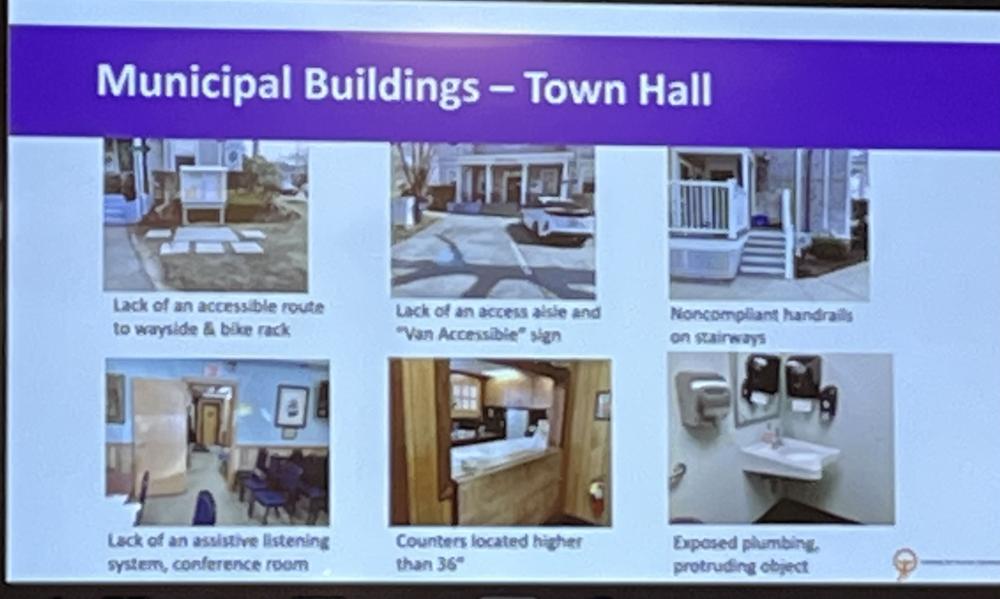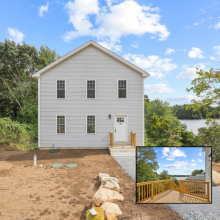Mattapoisett’s compliance with Americans with Disabilities Act evaluated
MATTAPOISETT — A town commission has been tasked with assessing and prioritizing a list of compliance issues with the Americans with Disabilities Act throughout Mattapoisett based on a report conducted by a design services nonprofit.
Representatives from the Institute for Human Centered Design presented the report, an “ADA self-evaluation and transition plan,” to the Mattapoisett Select Board and the Disability Commission on Tuesday, Nov. 12.
The plan surveyed the town’s compliance with the ADA, federal legislation that prohibits discrimination on the basis of disability.
Part of the law requires state and local entities to not discriminate against people with disabilities in their programs, services and activities, according to project manager David West.
The goal of the evaluation then was to ensure that Mattapoisett’s programs, services and activities “when viewed in their entirety are regularly accessible to and usable by people with disabilities,” he said.
The self-evaluation and transition plan conducted by the Institute for Human Centered Design was sought by the town, in part through a grant, according to Town Administrator Mike Lorenco.
“State and local governments must take steps to examine their programs and establish a plan for compliance with the law, and that’s basically what this transition process is all about,” West said.
Part of the report evaluated five “key intersections” around Mattapoisett, project manager Meghan Dufresne said.
The “most prevalent” issues were street crossings, curb ramps and walking surfaces, according to West and Dufresne’s presentation.
The report also evaluated 10 municipal buildings, like town hall, and eight municipal parks and beaches, like Ned’s Point and Shipyard Park.
The building and facility portion of the evaluation identified accessibility issues at those sites. At Mattapoisett Town Hall, that included noncompliant handrails on stairways, a lack of an access aisle to an accessible parking space outside the building, and service counters inside taller than 36 inches, an unmanageable height for wheelchair users, according to Dufresne.
At recreational facilities, Dufresne identified a lack of an accessible route to and around the playground at the town beach, a lack of an accessible route to the gazebo at Shipyard Park and noncompliant ramps to the restrooms at Ned’s Point with a lack of an accessible route to those ramps, among other issues Dufresne listed.
Dufresne also presented examples of good accessibility in Mattapoisett, like an accessible picnic table at Ned’s Point, an accessible work surface at the police department and a beach wheelchair at the town beach, which she said they don’t see “very often” in cities and towns and were “happy to see.”
The town’s recently reestablished Disability Commission was tasked by the Mattapoisett Select Board with assessing and prioritizing the list of compliance issues compiled by the report.
Select Board Chair Jordan Collyer said that while maintenance items could be dealt with, other items should be sorted by cost and importance.
“Let’s look at practicality,” Collyer said. “Price is important, but let’s look at practicality because reasonable cost can get us a lot of happy people.”
The Disability Commission will come back to the Select Board in January upon prioritizing the results of the report.
















